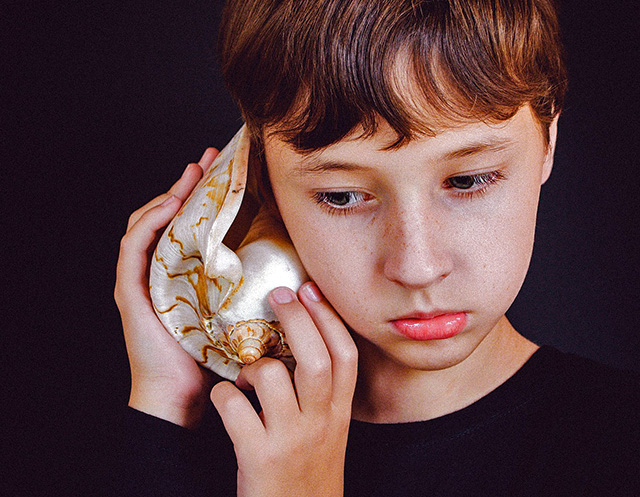Hearing loss is a prevalent condition affecting millions of people worldwide, with significant impacts on communication, social interactions, and overall quality of life. Understanding the common causes of hearing loss and adopting preventive measures can help mitigate its effects.
 hearing loss affects millions of people worldwide
hearing loss affects millions of people worldwideAge Related Hearing Loss
One of the most common causes of hearing loss is age-related hearing loss, known as presbycusis. This type of hearing loss typically affects both ears equally and progresses gradually over time. The primary causes of presbycusis include the natural degeneration of inner ear structures. As we age, the sensory cells in the cochlea, which are essential for hearing, begin to deteriorate. Additionally, changes in blood flow to the inner ear can affect hearing abilities, as reduced blood supply can damage the delicate structures within the ear. Genetic predisposition also plays a role; some individuals are genetically more susceptible to age-related hearing loss, making it an inevitable part of their aging process.
Noise Exposure
Noise-induced hearing loss is another significant cause of hearing impairment. Prolonged exposure to loud noises can damage the hair cells in the inner ear, leading to permanent hearing loss. Occupational hazards, such as working in construction, manufacturing, or other noisy environments, increase the risk of noise-induced hearing loss. Recreational activities, such as listening to loud music through headphones, attending concerts, or using power tools, can also cause damage. Sudden loud noises, like explosions or gunshots, can result in immediate hearing loss. The cumulative effect of these exposures can lead to significant hearing impairment over time.
Genetic Factors for Hearing Loss
Genetic factors are also crucial in understanding hearing loss. Hereditary hearing loss can be congenital, present at birth due to genetic mutations, or progressive, developing over time influenced by genetic factors. Individuals with a family history of hearing loss are more likely to experience similar issues. Understanding one's genetic predisposition can help in early detection and management of hearing loss.
Medical Conditions
Medical conditions and medications can contribute to hearing loss as well. Infections, such as chronic ear infections, meningitis, or measles, can cause damage to the structures within the ear, leading to hearing loss. Certain medications, known as ototoxic medications, can harm the inner ear. These include some antibiotics, chemotherapy drugs, and diuretics. Chronic diseases, like diabetes, hypertension, and heart disease, can also affect hearing. Proper management of these conditions is crucial to prevent associated hearing loss.
While less severe, earwax (cerumen) buildup can block the ear canal and temporarily impair hearing. Regular cleaning and proper ear hygiene can prevent this issue. It's important to address earwax buildup promptly to avoid complications.
Hearing Loss Prevention
avoid loud noises
Prevention of hearing loss involves several proactive steps. Protecting your ears from loud noises is essential. Use ear protection, such as earplugs or earmuffs, in noisy environments like construction sites or concerts. Limiting exposure to loud sounds is equally important; for instance, reducing the volume and duration of headphone use can protect hearing. Following the 60/60 rule—no more than 60% volume for no longer than 60 minutes at a time—can help prevent noise-induced hearing loss. Avoiding sudden loud noises, such as explosions or fireworks, or using ear protection when exposure is unavoidable, is also crucial.
have regular check-ups
Regular hearing check-ups are vital for early detection and management of hearing loss. Routine screenings, especially for those over 50, can help identify early signs of hearing impairment. Paying attention to any changes in hearing and seeking medical advice promptly can prevent further deterioration.
stay healthy
Maintaining overall health plays a significant role in hearing preservation. A balanced diet, regular exercise, and avoiding smoking can improve blood flow to the inner ear, which is essential for maintaining good hearing. Proper management of chronic conditions, such as diabetes, hypertension, and heart disease, can reduce the risk of hearing loss. Consulting healthcare providers about the potential side effects of medications on hearing is also important. Before starting any new medication, discussing its ototoxic potential with a doctor can help in choosing non-ototoxic alternatives when possible.
practice good ear hygiene
Practicing good ear hygiene is another simple yet effective preventive measure. Cleaning ears properly, avoiding the insertion of objects into the ear canal, and using a damp cloth to clean the outer ear can prevent earwax buildup and infections. If earwax becomes problematic, seeking professional removal rather than using cotton swabs or other objects is recommended.
Conclusion
In conclusion, hearing loss is a multifaceted condition with various causes, including age, noise exposure, genetics, medical conditions, and medications. By understanding these causes and taking proactive steps, individuals can protect their hearing and maintain their quality of life. Regular hearing check-ups, protecting ears from loud noises, maintaining overall health, and practicing good ear hygiene are essential practices for preventing hearing loss.
Related Pages
- Top 5 Hearing Aids on the Market: A Brief Overview
- Medicine and Health Care: Prevention and Treatment
- Nutrition Supplements for Sport
- Staying Healthy Tips
- About Sports Medicine


 Current Events
Current Events